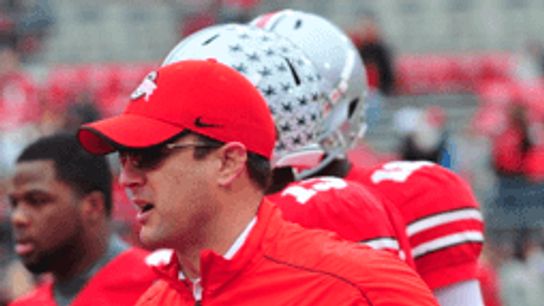Reese Leitao committed to Texas on Dec. 29, 2016, the sixth pledge to join Tom Herman's month-old regime. He signed with the Longhorns on Feb. 1, and by the end of the month it appeared his college career was over before it started.
A search of Leitao's backpack revealed a Xanax pill, which he admitted to his high school principal he intended to sell to his classmates. The booking process revealed more than $1,300 in cash and 19 more pills concealed within his underwear. He was charged with possession of a controlled substance with intent to distribute within 1,000 feet of a school -- a felony.
Leitao's attorney said Texas head coach Tom Herman indicated his client would have "a fighting chance" to wear burnt orange if the charges could be reduced to a misdemeanor. On Tuesday, that's exactly what happened.
Leitao pled guilty to misdemeanor drug possession, a charge that carries a 4-year deferred sentence and additional strings, but no jail time and no felony record.
"I’m happy," attorney Allen Smallwood told the Austin American-Statesman. "Hopefully the University of Texas will be happy."
In reducing the charges from a felony to a misdemeanor, Tulsa assistant district attorney Erick Grayless appeared to give Leitao leniency before the proceedings even began.
"Will we let the fact that he has a scholarship change our decision? No, but it is a factor,” Grayless said.
"When you have a young man such as Mr. Leitao, you take everything they’ve done into consideration when making a recommendation. You take into account (whether) it was an isolated incident. You take into account if there was a history. You take into account the reputation and background of the person. Family support. Those sorts of things all factor into the mix of what I’ll call his intangibles. You compare that to what the facts of the case allege, and then you make a just decision."
The district attorney's office made its decision, and now it's Texas's turn.
For the record, Leitao was a 4-star prospect at a significant position of need for Texas. In fact, it's not difficult to imagine him sliding directly into a starting position immediately upon arriving at Texas had this case never happened. He also hails from powerhouse Jenks High School in Tulsa; having him succeed as a freshman would provide a significant boost in Herman's ongoing recruiting land war in Oklahoma.
Like his predecessor, Herman is a subscriber to Urban Meyer's five core values: honesty; treat women with respect; no stealing; no weapons; and (placed last for emphasis) no drugs.
How can Herman claim to live by those core values while at the same time allowing someone who, according to the original police report, admitted to selling prescription drugs & has now pled guilty to possessing them.
Does the fact that the district attorney chose to allow him to plead guilty to just the misdemeanor possession charge change anything in your opinion? The facts of what happened didn't change. Leitao had the 20 pills on him while at school, had $1,300 on him and admitted to his principal that we was selling.
Coaches, what would you do if this were your player? One can see where a blanket policy would protect coaches, since handling each arrest on a case-by-case basis could invite accusations of hypocrisy down the line. There's also an apparent appeal in taking the decision completely out of your hands as a coach by following the university's admittance/denial standards. If Leitao was not an athlete, would the University allow him to enroll?
Herman has said he will serve as judge and jury on Leitao's fate, and on Tuesday said a verdict was still to come.
If you were Tom Herman, how would you handle Leitao? And if the situation -- felony charge, misdemeanor plea -- changed to involve violence against a woman, how would that affect your decision?
Or what if it was a staff member? A coach agrees to join your staff and before he can report to campus he's caught with 20 Xanax pills and a wad of cash. Do you still hire him? Do your answers change from the above paragraph to this one, and if so, why?
